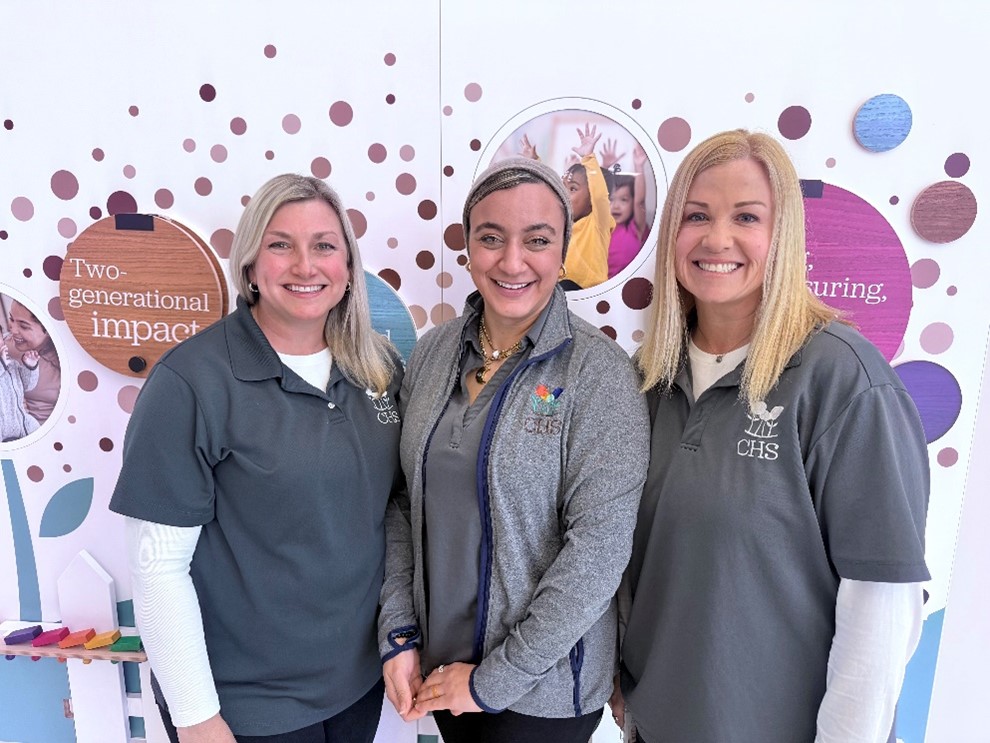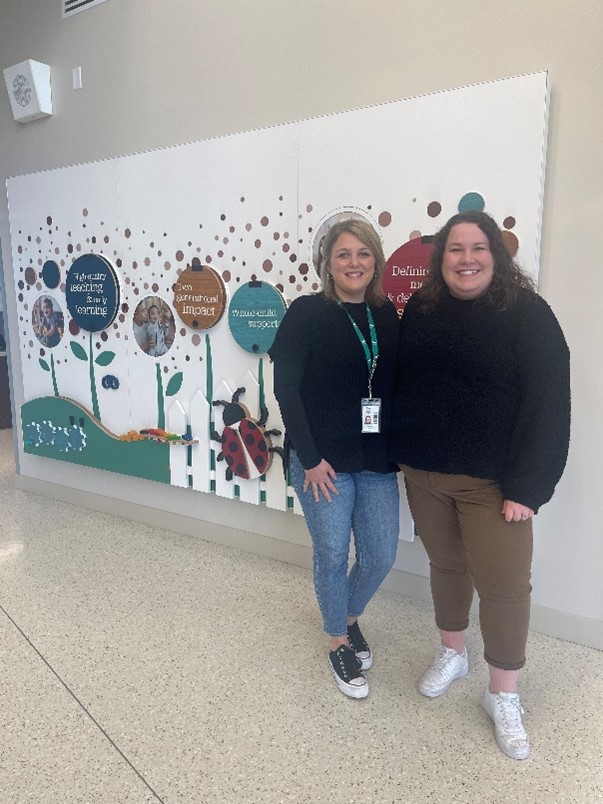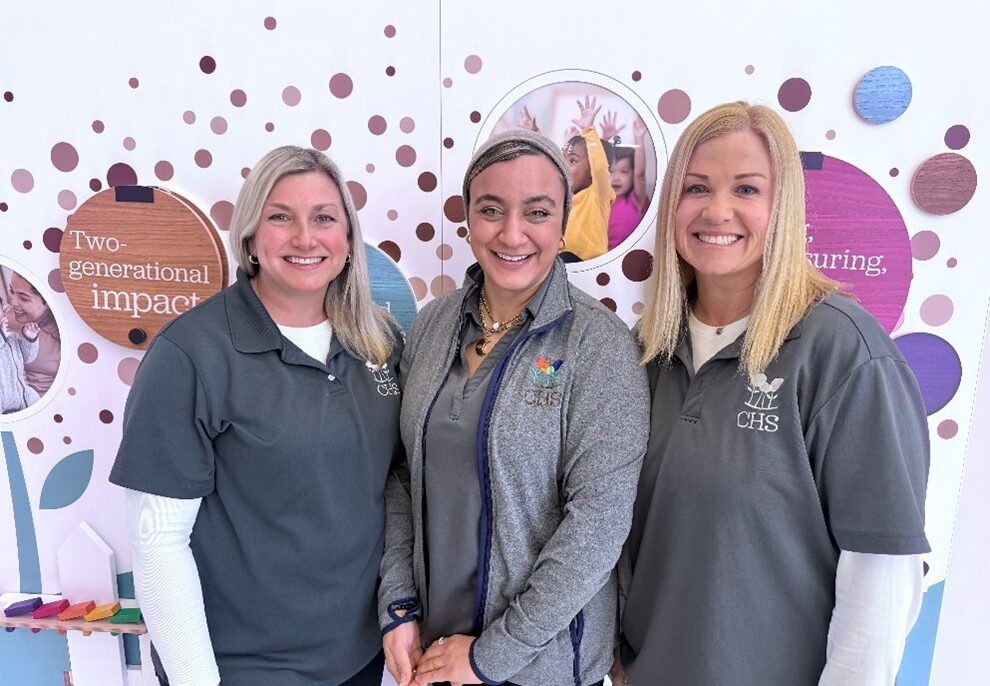Behavior Intervention Specialists: Supporting Children and Staff at CHS
At Catherine Hershey Schools for Early Learning (CHS), every role is essential in fostering a nurturing and supportive environment for children. One such critical role is the Behavior Intervention Specialist (BIS), a key part of each center’s Health Services team. These dedicated professionals provide behavioral management and support services to help children develop the social-emotional skills they need to thrive.
Behavior Intervention Specialists are not commonly employed directly on-site in most Early Childhood Education (ECE) centers, but are vital in proactively identifying and supporting specialized behavioral support to children, while also supporting educators in the classroom. The BIS delivers interventions tailored to meet the needs of young children facing behavioral challenges, who are struggling to develop emotional regulation skills, or are having a difficult time interacting with peers.
This CHS role is unique in an ECE setting because it bridges the gap between classroom instruction and individualized behavioral support, ensuring that every child receives the attention and care necessary to succeed.

The BIS works directly with children, developing and implementing individual skill work and social skills groups, and creates personalized behavior plans in collaboration with the CHS Child Support Teams, designed to serve as a dedicated resource for the whole family.
In addition, the BIS provides consultation to teachers and families, offering evidence-based strategies and resources to manage behaviors effectively. This on-site support empowers teachers by giving them the tools they need to maintain a positive learning environment, while also ensuring that children in crisis receive immediate and appropriate care. For an educator, having this collaborative, on-site support improves the overall classroom environment, reduces behavior-related stress for all adults and peers within the classroom.
A Tiered Approach to Behavioral Support
CHS uses a thoughtful, multi-tiered approach to behavioral support, ensuring every child receives the level of guidance they need from general classroom strategies to individualized interventions. By implementing evidence-based practices at each level, Behavior Intervention Specialists help children build self-regulation, communication, and social skills, promoting long-term emotional and behavioral growth.
Making a Difference Every Day
A typical day for a Behavior Intervention Specialist involves a mix of direct child support, collaboration with teachers and staff, and ongoing assessment of behavioral interventions. Whether leading social skills groups, coaching teachers on behavioral strategies, or stepping in to assist a child in crisis, BIS professionals ensure that every child receives the support they need.
Hear from BIS team members at CHS:
“In the morning, I begin by visiting each classroom to check in on both the students and the teachers,” CHS Hershey BIS Manar Abdelhafez said. “I then provide support during the children’s morning meeting and offer sensory breaks in the sensory room for those who are on a sensory diet.”
Once a week, her team holds “friendship groups” and has an “enrichment group” for children who can benefit from boosting social and emotional development.
“For the remainder of the afternoon, I complete paperwork and documentation to ensure all interventions and progress are properly recorded” Abdelhafez said.
“Every day is a new opportunity—you never know what the day will bring,” CHS Hershey BIS Aimee Grim said. “That’s what makes this job fun and exciting!”
Collaboration for Child Success
Behavior Intervention Specialists work closely with Child Support Teams, Family Success staff, and other Health Services professionals to develop and implement individualized support plans. This collaboration ensures that interventions are comprehensive and tailored to each child’s needs.
CHS Hershey BISs explained:
“Recently, one of the classrooms that I have been working closely with was having increased behaviors,” said CHS Hershey BIS Pam Lindquist. “The teacher and I collaborated to create a zones of regulations curriculum to help her students develop a better understanding of how the emotions they are experiencing impact their behaviors, which impacts other student’s behaviors during the day. Since introducing this curriculum, the students have actively used the zones of regulation by stating they are feeling in the red zone and talking about what they can do to get to the green zone.”

“This job is all about collaboration—building strong communication, mutual respect, and working toward shared goals for both parents and children,” Grim said. “It’s about consistency, routines, and open communication to make sure a child is successful both in the classroom and at home.”
Behavior Intervention Specialists at CHS Middletown are nearing the end of their professional development program in preparation of their center opening this year. They are focused on building strong relationships within the team to establish consistent communication and collaboration and positively impact children and families.
“Collaboration is vital, especially when additional needs are identified for our children,” CHS Middletown BIS Shannon Hill said. “By working closely together, we can ensure that we are providing the best possible support to meet those needs and create a positive, responsive learning environment. I am committed to fostering an open, supportive space where everyone feels heard and valued, ensuring that we’re all prepared to succeed when the center is fully operational.”
“I’ve had the chance to work with teachers and families through projects, presentations, and mock scenarios, even before our center opens,” CHS Middletown BIS Rachel Golden said. “That preparation is helping us establish strong working relationships and smooth communication from day one.”
A Mission-Driven Career
The Behavior Intervention Specialist role at CHS is an opportunity to make a lasting difference in children’s lives. CHS provides professional development and training, ensuring that BIS professionals are equipped with the latest research and best practices in behavior intervention and early childhood development.
Hear from the BIS teams at CHS:
“The most rewarding part about my job is building positive, impactful relationships with the teachers, students, families and our amazing CHS Hershey team,” Lindquist said. “CHS Hershey is a strong, impactful family where everyone encourages each other for the betterment of our families.”
“What really makes CHS unique to me is their holistic approach to care,” Abdelhafez said. “I appreciate how CHS does various things to not only help the child, but also help their family, which ultimately improves the quality of the children’s home life. One of the most rewarding aspects is witnessing the child’s growth and development.”
“Working with children is incredibly rewarding for me,” Grim said. “I love that I can make a positive impact in a child’s life as well as help with the families. The growth that I see in both children and families is by far the most rewarding part of my job. I love building connections with the kids and just having fun with them. I feel very fortunate to say that I love what I do!
Join Our Team
Catherine Hershey Schools for Early Learning is seeking dedicated professionals to join our Health Services team. If you have experience in behavior intervention, early childhood education, or social-emotional learning, we encourage you to explore career opportunities with us.
Together, we can empower children with the skills they need to thrive—one step at a time.

